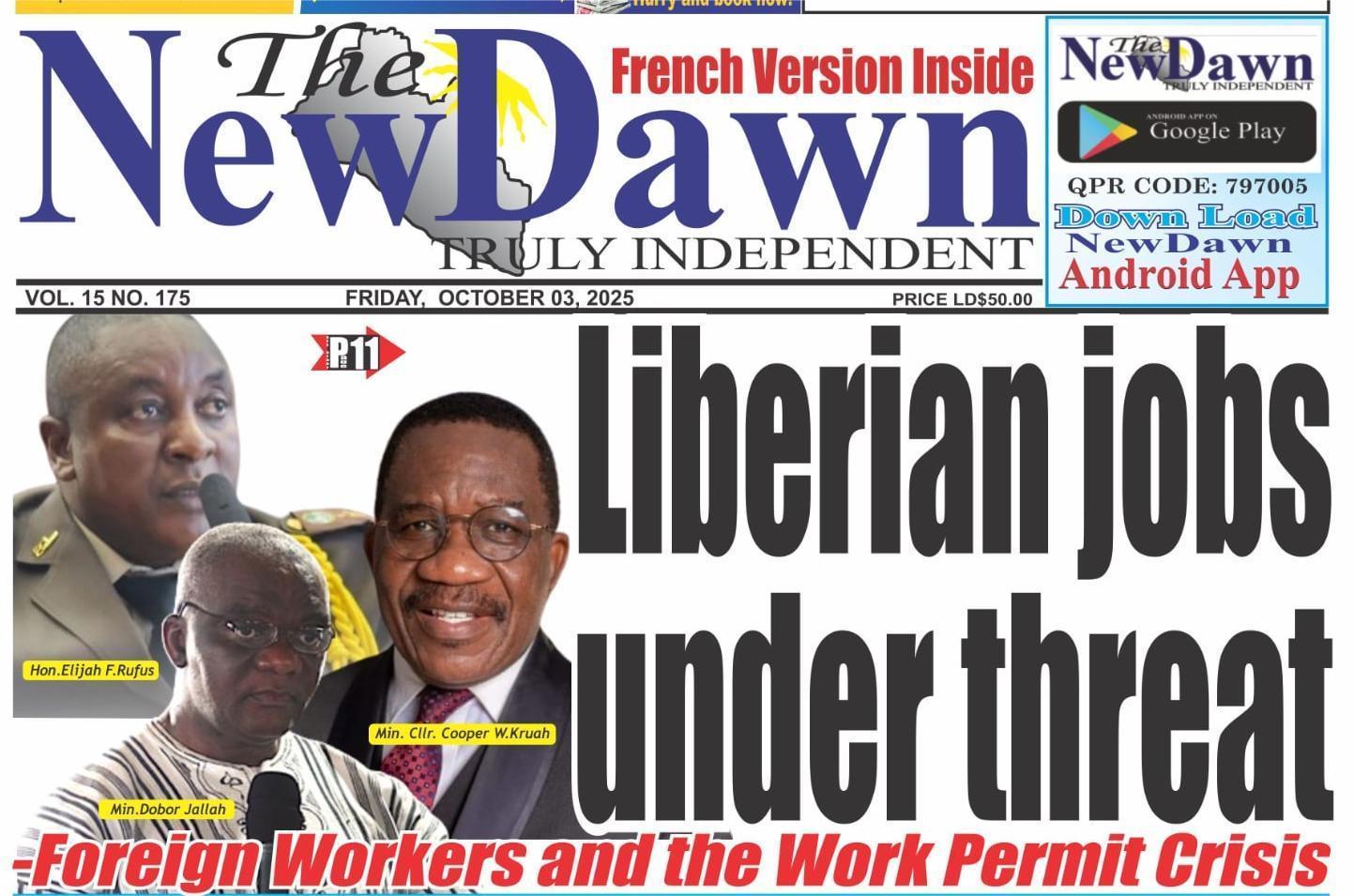Africa-Press – Liberia. By Othello B. Garblah
Monrovia, October 3, 2025: The Liberian job market stands at a crossroads amid mounting concerns over the influx of foreign workers occupying positions at major concessions without proper resident and work permits.
This development, coupled with a recent increase in work-permit fees and ongoing irregularities in permit issuance, poses significant risks to local employment and challenges the enforcement of labor laws.
The situation has prompted planned audits and investigations by the Liberian Revenue Authority, underlining the urgent need for transparent policy enforcement and protection of Liberian jobs.
In Liberia, foreign nationals seeking employment are required by law to obtain both resident and work permits. These permits are intended to regulate the influx of foreign labor, ensure compliance with immigration and labor standards, and prioritize employment opportunities for Liberians.
Recently, the government announced a notable increase in work-permit fees, justifying the move as a means to generate revenue and strengthen labor oversight.
However, critics argue that the higher fees may have unintended consequences, such as incentivizing illegal employment or circumventing proper procedures by both employers and foreign workers.
Reports indicate a significant increase in the number of foreign nationals, particularly from India, Turkey, and Ghana, working at major mining, construction, and agricultural concessions in Liberia. Many of these workers reportedly occupy positions for which Liberians are qualified, raising concerns among the population and policymakers.
One immigration source told this paper that most of these foreign workers arrived in neighboring Sierra Leone and were bused across the border, where they were immediately placed in jobs.
The methods by which these workers are brought into the country often involve direct arrangements with concession companies. In some cases, foreign workers arrive on short-term visas or as “experts,” only to remain and work beyond the legal limits of their entry status.
A troubling trend is the illegal employment of these foreign nationals without the appropriate resident and work permits. Some employers reportedly bypass the official channels, exploiting loopholes or engaging in outright non-compliance to avoid paying increased fees or undergoing regulatory scrutiny. This practice not only undermines the integrity of Liberia’s labor market but also deprives the government of vital revenue and reduces opportunities for local job seekers.
The Ministry of Labor, tasked with overseeing the issuance and renewal of work permits, faces significant challenges, including systemic inefficiencies, allegations of corruption, and inadequate capacity.
In response to mounting public pressure and allegations of irregularities, the Liberian Revenue Authority (LRA) has announced a comprehensive audit of work permit issuances at major concessions. The audit aims to identify discrepancies, recover lost revenue, and ensure compliance with labor laws.
Concurrently, law enforcement agencies have launched investigations into the widespread use of fake resident permits, targeting both employers and intermediaries suspected of facilitating illegal employment. These efforts signal a renewed commitment to upholding the rule of law but also highlight the scale of the problem facing the country.
The unchecked influx of foreign workers and the prevalence of illegal employment practices have profound implications for Liberia’s workforce. Local job seekers face increased competition for positions, particularly in sectors where concessions are prevalent. The failure to enforce work permit regulations erodes public trust in government institutions and undermines the country’s labor protections.
Additionally, the loss of government revenue from uncollected permit fees and taxes hampers public investment in critical areas such as education, healthcare, and infrastructure.
From a broader perspective, the situation risks tarnishing Liberia’s image as a destination for responsible investment. Companies that flout labor laws and employ foreign workers illegally may gain an unfair advantage over compliant businesses, distorting the competitive landscape and discouraging adherence to best practices.
For More News And Analysis About Liberia Follow Africa-Press






